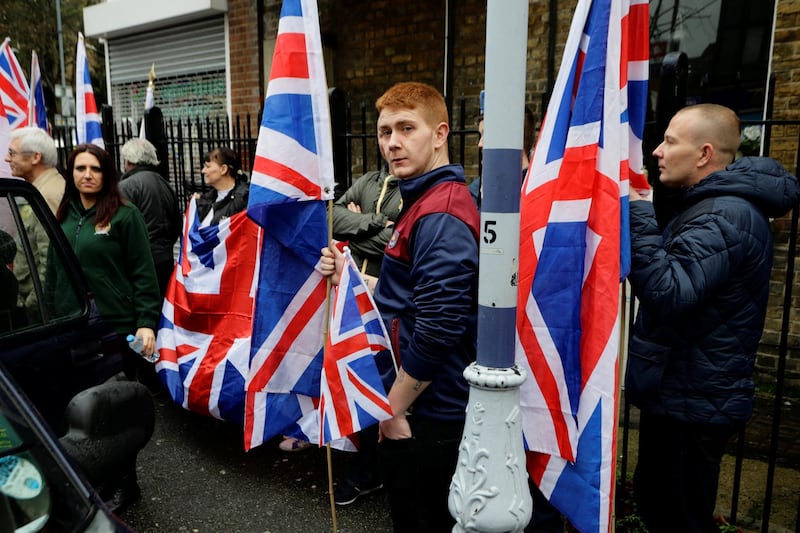Beyond the fringes of the UK’s native far-right movement, it’s unlikely that many people with politically moderate views would have heard of Britain First before US president Donald Trump retweeted three posts by the organisation’s deputy leader Jayda Fransen’s social media account.
Yet despite a tiny actual membership which is estimated to be between 3-400 people, according to the British anti-fascist advocacy group Hope Not Hate, it is the group’s digital reach which even before Mr Trump’s intervention had made their strand of anti-Islamic hate speech so pernicious – they have 1.93 million likes on Facebook.
It was also associated with the first assassination of a British politician in nearly three decades last year when the Labour MP Jo Cox was shot and stabbed multiple times by a far-right sympathiser. Thomas Mair, who is serving life in prison for the murder, shouted “Britain first” during the attack in her Yorkshire constituency during the European referendum campaign.
They were formed in 2011 out of the ruins of the British National Party (BNP), a relatively mainstream party which polled 1 million votes in the 2009 European elections gaining them two seats in the Brussels parliament.
As the BNP’s popularity began to wane from that high point, elements from it joined with members of a more extreme organisation called the English Defence League, who were an extra-parliamentary group that practiced the politics of the street, staging provocative anti-Islam demonstrations in areas of Britain with high Muslim populations such as Luton.
“Britain First are a hybrid of the BNP and the EDL,” Matthew Collins of Hope Not Hate told Irish radio station Newstalk on Wednesday. “But they have been around five years which in far-right British political terms is almost a lifetime.”
_______________
Read more:
[ Trump fires back at Britain’s May after she tells him it was 'wrong' to re-tweet anti-Muslim videos ]
_______________
The group began in Belfast, Northern Ireland where they were born out of a far-right, anti-abortion, hardline protestant movement. Its founder Jim Dowson had left the BNP in 2010 saying he wanted to start an anti-Islamic Christian group and initially Britain First was an evangelical movement, moving away from Jewish conspiracy theories that were rife on the far-right and focusing on Islam.
But as the anti-Islam position on the British far-right “became crowded” during the last year, Mr Collins said, Britain First has moved back to a more traditional far-right position and has become involved in Holocaust denial, inviting speakers from Europe who hold such views to address meetings.
Mr Collins says that the group wants “a country that they believe is Christian, which is code for mainly white. They are very, very anti Muslim, they are becoming more and more back to the original position of the far right in this country, which is anti-semitic, they are spending more and more time with Holocaust deniers... They want a country where Paul Goldin, the leader, and Jayda Fransen, are like some British style fuhrers.”
Their ‘actual’ presence in Britain is incredibly limited; they have never polled more than 1% when they have stood in any public elections, and they rarely get more than 100 people on marches; a day of action that they called in August 2017 in Wolverhampton saw just 40 people turn up on a demonstration where they were vastly outnumbered by anti-fascist protesters.
But online they have managed through clever use of social media to garner a wide following. They often associate themselves with causes such as supporting the British armed forces that appear to be mainstream positions, but use these as camouflage to raise money to support their activities – they have been accused of hijacking the poppy symbol of remembrance of fallen soldiers.
Both Mr Goldin and Ms Fransen have outstanding criminal charges against them and spent much of the summer travelling Europe, telling meetings of similarly minded groups that they were “on the run”, according to Mr Collins. Ms Fransen was arrested earlier this month in London in relation to a speech in Belfast in August that saw her charged with “threatening, abusive or insulting words or behaviour”.






